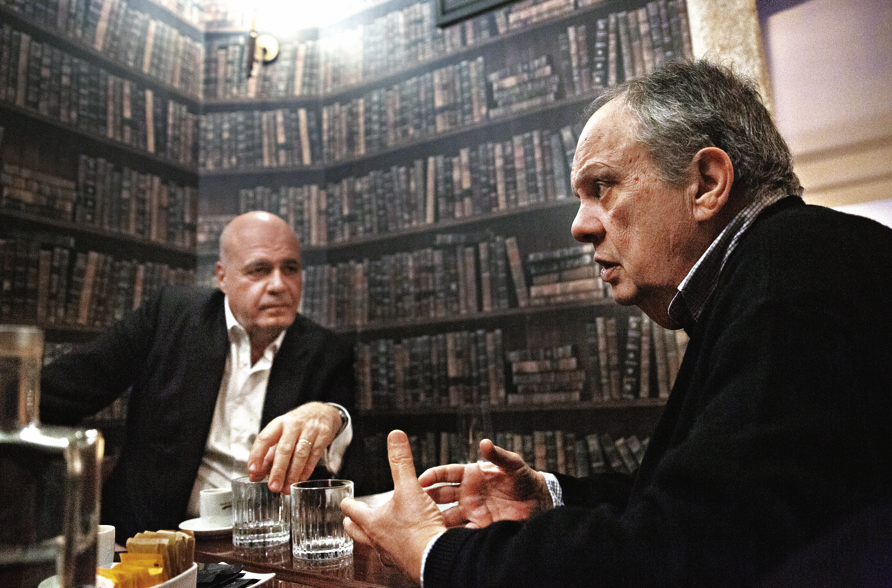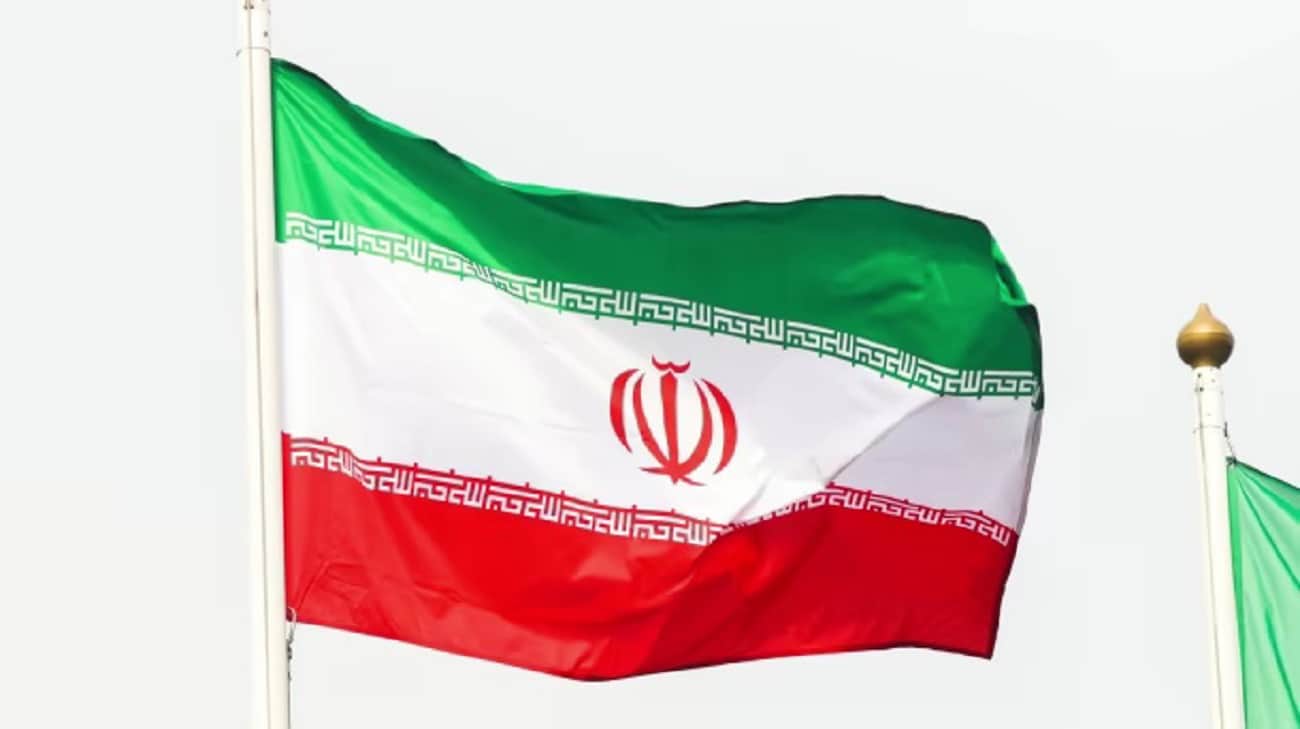Central block? The children of the protagonists have doubts

The conversation at the lunch table had one goal: to gather the children of the two protagonists of the first and only central block of the 50th anniversary of Portuguese democracy. João Soares, son of Mario Soares and Paulo Mota Pinto, son of Carlos Mota Pinto also had them, years later, active political life in the parties that parents led at the beginning of democracy.
What memories do you have from this time? What assessment make a solution that parents have adopted and has become poorly loved in the eyes of the Portuguese and toxic to the following leaders of democratic socialists and socialists? And how do you look at a hypothetical repetition of revenue, at a time when several voices begin to think it’s the solution to get out of the political impasse in which the country seems to be sunk?
With the well -defined script, João Soares and Paulo Mota Pinto arrived at the time scheduled for the restaurant on Rua de São Bento, right in front of Parliament. Upon arrival, they remembered the times when the two deputies in the time of the Government of Passos Coelho shared functions in the Secretary Services Inspection Commission. « We did a good job and we had a lot of information, » said João Soares who stressed the differences between access to information that the Portuguese deputies had, contrary to what happened to the counterparts of other countries. « We smelled much more than the Americans, » he said, with the assent of Mota Pinto.
Eanes, Cunhal and the financial crisis
Carlos Mota Pinto was 18 when his father, then PPD leader, started negotiations with Mario Soares for a government agreement. «The first thing I remember is the reelection of General Eanes, where there was a division of the PS. My father who had been a prime minister in a government appointed by General Eanes wrote a letter to explain why he could not support him, because he was elected by a totally different base from what he had elected, even said reverse, and at that time there was a division in the PS, because Dr .. Soares did not want to support him, ”he recalls.
João Soares agrees that one cannot understand what led, at the time, to the junction in the PS and PPD government, without looking at political circumstances at a time when democracy took the first steps with great troubles. The son of the historical leader of the socialists states that he has respect for Eanes, but refuses to make him a saint. He is the only case of a president who, in office, launched a party from the Presidency of the Republic.
The PRD, which was born with the inspiration of Eanes, emerged at the end of the government of the Central Bloc, which ruled from 9 June 1983 to November 6, 1985. Two years in which a coalition contradiction between the two largest Portuguese parties had to face a financial crisis « equal or worse than we live in 2011 », but which successfully crossed this period. And the way successfully completed Portugal’s entry into the EEC: “The central block made the most important decision of the twentieth century in Portugal. And at the time it was not consensual, he had the opposition of the Soviet Union and Álvaro Cunhal, ”recalls João Soares. Paulo Mota Pinto agrees and adds, “confuse the central block, with the central block of interests, the idea that the two parties together occupy everywhere, is denied by history. History shows that this is a problem of absolute majorities.
John Soares regrets that the narratives that were later did not correspond to what really happened. For the former mayor of Lisbon. ‘There is a part of pris that results from a narrative that has been created since the central block was over. It is a party pris that is built in a deeply negative narrative and we live in a world where narratives dominate, people do not do the objective analysis of the results. In the view of João Soares, this « narrative » was path because Mota Pinto died in 1985, shortly after the end of the government of the central bloc. « The problem was Professor Mota Pinto’s disappearance, because if this speech was not unpunished. » And the large responsible for the devilishing of the government solution that brings together the two largest Portuguese parties, was the Lord who followed in the leadership of the government. Aníbal Cavaco Silva was elected PSD leader with the support of the Nova Esperança group, which included names such as Pedro Santana Lopes, Marcelo Rebelo de Sousa, Durão Barroso and Alberto João Jardim. In the next decade he ruled the country always devouring the government that preceded him. «The PSD was largely responsible for this narrative and took great dividends of it with Cavaco Silva,” explains Paulo Mota Pinto.
Can the central block reborn from the ashes?
The question begins to be inevitable, at a time when figures of the two parties begin to talk about the need for an understanding between PS and PSD. No one dares to suggest a solution identical to that of 1983, but there is talk of legislature understandings.
The largest fragmentation of the Assembly of the Republic, which makes it virtually impossible to obtain absolute majorities of a single party, and the red lines that make it impossible for political understanding to the right, are the main reasons that lead figures such as Augusto Santos Silva, Ferro Rodrigues or Marques Mendes and José Eduardo Martins to defend post-election understandings between socialist and social-democrats.
At the lunch table this possibility is seen with some skepticism. Paulo Mota Pinto thinks this is an exception solution and believes that « the context is not created for such a solution. »
João Soares has more doubts, agrees that this is not a probable solution in the home political debate, but notes that “we may be closer than we think. We look at the world and we can see signs that we can be close to what the roots that originated what the central bloc, as an emergency solution, in a complicated international and national context.
The socialist says that the pre-campaign is passing along with issues that can greatly condition the future of the country, not only because of wars in Europe and the Middle East, but also because of the uncertainty that comes from the other side of the Atlantic, with a very unpredictable US administration and taking action that can create a world economic crisis. If the external threats are confirmed, they agree that both of them that the understanding of the two great parties « may not only justify it but be necessary. »
Even so, the son of the former social democrat leader insists that at this moment this is a solution that is not glimpsed, because current leaders, Pedro Nuno Santos and Luís Montenegro, have a difficult, almost incompatible relationship. Already the parents of the central block and our guests, Mário Soares and Carlos Mota Pinto had good relations and had even worked together in the first constitutional government. « It was an exceptional solution, with exceptional protagonists, » they agree, and João Soares says that « if one day has to be done has to be in a logic that obliges the protagonists to change their behavior. »
Already after 1985, there were times when socialists and social democrats had better institutional relations and leaders who respected each other. The most emblematic case happened between 1995 and 2002, when António Guterres was Prime Minister and Marcelo Rebelo de Sousa led the PSD. Longtime friends, the two managed to understand themselves so that the socialists, without a majority in parliament, could rule without major starters. At the time, the current President of the Republic guaranteed shortly after being elected party leader, which would let the budgets pass so as not to prevent Portugal from entering the euro with the first group of European countries.
It was the only experiences in which the central block worked and from there it definitely became a toxic product. Why? « The PSD has that idea that it gets majorities against this speech and this has very well tied marks in the party’s foundations, » explains Paulo Mota Pinto that he became a parliamentary leader of Rui Rio. João Soares agrees that historically, the antibodies to PS/PSD understandings, come more on the social democrats than the socialists, « if the question is to be given that there will be no problems on the side, the question is that there will be no problems on the side of the PS. Problem is more the Montenegro which is that older PSD PSD ».
The difficulty of government understandings between the two largest parties is a Portuguese originality, which has no parallel in most European countries. In a few days in Germany, a government that brings together CDU and SPD again in a majority coalition to rule with stability in the coming years.







